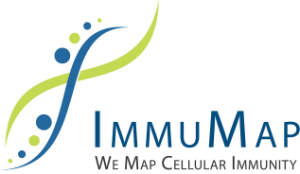
Immumap believes in data-driven decision-making and is based on the foundation of its scientific expertise and know-how.
The company supports its clients through all phases of drug development. As treatments and development projects vary greatly, Immumap has a strong focus on customised assays that it co-develops with its customers to ensure high-quality data that answers their hypothesis, helps them understand cause-and-effect relationships and guides their high-impact decisions.
This case study provides an example of a highly customised study approach.
For a biotech client, Immumap recently developed an intricate assay with a strong focus on characterisation of antigen-specific T-cell populations for immune monitoring of cancer patients in a clinical setting. Using this assay, the company investigated a broad range of T-cell maturation phenotypes in parallel with the expression of checkpoint inhibitors, a transcription factor and a proliferation marker alongside the common lineage markers singlets Live/Dead, CD3 and CD8.
The multi-layered data obtained using this assay illustrate well the vast power of multicolour flow cytometry for detection and tracking of low-frequency immune cells in clinical phase patients, healthy individuals and mice.The figure illustrates the analysis of a human donor’s peripheral blood mononuclear cell (PBMC) sample with a validated Epstein-Barr Virus (EBV) antigen-specific T-cell response using combined major histocompatibility complex (MHC) multimer and multiparametric antibody staining (deep profiling of antigen-specific T cells).
In the figure, Tn refers to naïve T-cells; Tscm is stem cell memory T-cells; Tcm is central memory T-cells; Ttm/Tem is transitional memory and effector memory T-cells; and Tte / emra is terminal effector T-cells.
As leaders in the commercial space within multiplex staining of antigen-specific T-cells using MHC multimers, Immumap enjoys applying its expertise for both small-library MHC multimer studies and up to simultaneous staining of more than 1,000 antigen-specific T-cell populations using an innovative platform.

